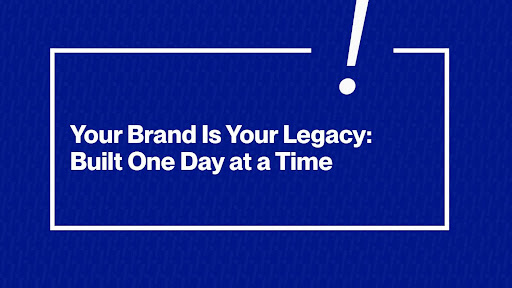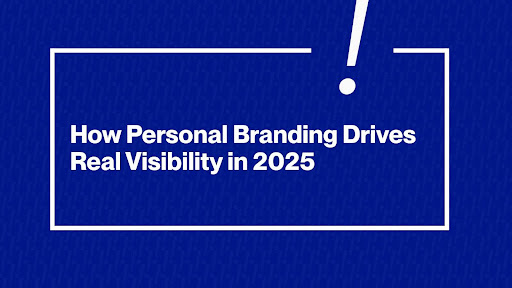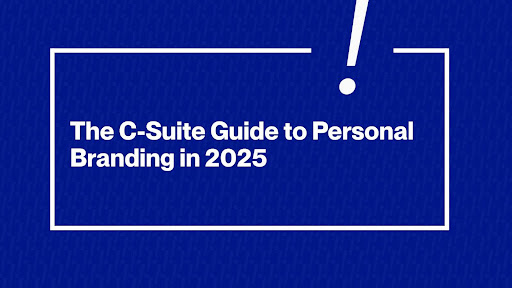Building a personal brand means shaping how people perceive you as a founder. It’s more than a logo or website, as one expert notes, it’s “the emotional connection people make with you” through your values, voice, and story. In today’s hyper-connected world, a strong founder brand is “no longer optional; it’s essential”.
For women founders, this is especially true: in industries still dominated by men, a clear and confident personal brand lets women “position themselves as leaders, not just founders”. A compelling personal brand helps you stand out in a crowded market, win trust, and attract opportunities.
However, UK female entrepreneurs face specific headwinds. For example, only about 15% of UK small businesses are now women-led (down from 19% two years ago). Surveys show women often feel they must work harder: 35% of UK female SME owners report encountering gender bias, and 53% feel pressure to prove themselves more than their male counterparts. These challenges reinforce that effective personal branding isn’t just marketing fluff; it can be the difference between blending in and breaking through.
The Double Burden of Proof In the UK
Female founders often bear a “double burden”: they must validate their business idea and counter gender bias. Key challenges include:
- Gender Bias & Self-Doubt: Over a third of UK women-led businesses reported discrimination, and over half of female founders feel they constantly have to prove themselves more than their male peers. Many admit feeling unique pressures (like impostor syndrome or not being taken seriously) simply because they’re women.
- Confidence Gap: Research finds only 29% of UK women entrepreneurs feel confident running their business (vs. 48% of men). This gap in self-assuredness reflects deep-seated pressures that women face in entrepreneurship.
- Funding Gap: Access to investment remains lopsided. Data from the British Business Bank shows just £0.02 of every £1 of UK venture capital goes to all-female founding teams. In other words, women get only 2% of VC funding.
- Stereotypes & Double Standards: Social expectations create a leadership double-bind. Studies have found that women who act assertively often get penalized (labeled “bossy”), while being agreeable can make them seem weak. For example, one campaign highlighted how men’s ambition is praised (called “assertive” or “ambitious”), but identical traits in women are insulted (“bossy” or “pushy”). This constant balancing act, showing confidence and warmth, is a unique burden.
- Under-Representation: These pressures show up in the numbers: just 15% of UK SMEs are female-led, and many women feel undervalued. Only 1 in 3 women feel business owners like them receive the recognition they deserve.
These facts paint a picture: female founders in the UK start at a disadvantage, fighting both business challenges and gender bias. A well-crafted personal brand helps counteract that. By articulating your story, values, and vision clearly, you give others concrete reasons to trust and support you, effectively pre-empting doubts. In short, personal branding becomes a powerful tool to turn the “double proof” into distinct credibility.
Positioning with Clarity and Power
The first step in personal branding is clarity. Know who you are as a leader and who you serve. Define your core values, mission, and unique value proposition. Ask yourself: What am I known for (or want to be known for)? What impact do I aim to make? As one branding guide advises, clarifying your identity “is the foundation for building an authentic and memorable presence”.
This means crafting a concise personal brand statement that distills your strengths and what makes you different. For example: “I’m a tech founder who brings underrepresented people into data science with accessible training and inclusive design.” That sentence instantly tells people whom you help and how.
Personal branding also lives in images and style. Your photo, wardrobe and logo are all part of your story. The photo above shows a founder in a bold, upbeat style, it communicates confidence and creativity at a glance.
By maintaining a consistent visual look (colors, fonts, professional photos) that matches your personality, you reinforce your message every time someone sees you. For instance, a founder in tech might use sharp, minimal visuals to signal innovation; a social enterprise leader might choose warm, authentic imagery to highlight empathy. Consistency here is key: it cements your brand in people’s minds.
Beyond looks and values, the story you tell is crucial. Share why you started your business, your background, challenges, and triumphs. This humanizes your brand. As the Female Founder blog notes, telling your origin story and lessons learned “builds emotional trust, and in business, trust is currency”. It could be as simple as a short narrative: “Growing up, I saw local shops struggle, so I launched my e-commerce platform to empower small retailers.” That story connects you to your purpose. Over time, weave examples of success (case studies, customer wins) that align with that story, rather than just shouting your achievements.
Through clarity and consistency, you present yourself with power. Speak with confidence about your expertise: share data or results that back up your claims. Avoid wishy-washy language or qualifiers.
Research even suggests women entrepreneurs often understate their successes, so reverse that habit. Present your accomplishments boldly, letting the evidence speak for itself. This doesn’t mean boasting; it means being direct about your impact. For example, instead of “we helped clients a bit,” say “we increased our clients’ revenue by 30%” (if true!).
Having a clear message makes you memorable. Branding expert Vicki Knights notes that customers ultimately do business with people they know, like, and trust. You create that know-like-trust factor by being consistent and authentic. Regularly share thoughtful content, blog posts, LinkedIn articles, or videos that reflect your viewpoint.
Over time, this positions you as the go-to expert in your niche. As Knights experienced, being visible and sharing her journey led to tangible opportunities: “Speaking on stages, featuring in books and magazines, guest speaking on popular podcasts, have all come as a result of being visible in my business. Building my brand meant that others saw me as an authority in my field”.
Here are actionable steps to sharpen your positioning:
- Define Your Brand Identity: Clarify your purpose, values, and unique value proposition. Write a brief personal mission or elevator pitch that you can repeat to yourself (and others).
- Craft a Compelling Story: Use your background, challenges, and wins to make your brand relatable. Show your passion and the “why” behind your business.
- Know Your Audience: Identify your ideal clients or partners. Speak their language and address their needs in your content and marketing. Focusing on them (rather than yourself) strengthens relevance.
- Be Consistent Across Channels: Use a cohesive tone, logo, and photo style on your website, social media, and profiles. Consistent colors and imagery act like a visual signature.
- Share Your Expertise: Publish helpful content (articles, videos, podcasts). Lead with value instead of sales pitches. This thought leadership builds credibility.
- Use Authentic Voice: Don’t copy others; speak in your natural style. Honesty resonates. If you make a mistake, own it. Authenticity invites loyalty.
These steps help you position yourself with power: when your message is clear and your values shine through, you project confidence. One study notes that women entrepreneurs often outperform men in drive and results: women-led businesses saw revenue climb 27% (2021–22), a higher jump than men-led firms. By aligning with that ambition and showcasing it, your brand will “become the brand” for your company, a beacon that others (investors, media, customers) will follow.
Social Media vs Real Influence in the UK
Having a polished brand online is important, but influence extends beyond social media. As Viviane de Beaufort of ESSEC Business School explains, women must increase their “professional visibility” to stand out, and social media is one key tool. Indeed, most investors or collaborators will Google you: one study found 90% of people research a business leader before meeting them. An active LinkedIn or X profile (sharing your insights, publications, and testimonials) ensures that the first impression is positive.
Beyond the screen, real-life presence matters. The photo above is a reminder: personal branding isn’t just about online profiles, it’s about how you show up in the world. Being a regular face at industry events, meetups, or conferences builds trust that no number of Instagram likes can.
For example, Vicki Knights notes that her speaking gigs, magazine features, and podcast invitations only happened after people saw her actively sharing knowledge and getting involved. In practice, this means writing for trade publications, speaking at panels, or leading workshops. Such activities let others vouch for you and generate word-of-mouth credibility.
At the same time, social media remains a powerful amplifier. Platforms like LinkedIn or X allow you to share insights with wide audiences. However, they work best when they support, not replace, real-world influence. One recent panel on founder branding asked: “How does personal visibility translate into funding, partnership, and customer trust?” The implication: Simply posting isn’t enough; you must connect it to tangible goals.
Here are strategies to balance social channels with real influence:
- Strategic Social Media Use: Post content that showcases your expertise and adds value, rather than just self-promotion. As de Beaufort suggests, use social tools to highlight your successes and skills. For example, share case studies, industry tips, or thought-provoking questions. Engage with comments and discussions to build relationships.
- Engage Offline: Attend women’s networking groups, startup meetups, or tech hubs. Being present in person helps people put a face to your brand. Seek speaking or media opportunities: a single press mention or podcast interview can reach potential supporters in your industry.
- Build Media Relationships: Don’t overlook local press and trade publications. Journalists often look for founders with expertise. By pitching your story (e.g., your unique startup journey or data you’ve gathered), you gain coverage that cements your authority.
- Leverage Networks: Join female founder organizations and mentorship programs. Collaborating with other women (for joint webinars, panels, or workshops) multiplies visibility. These networks often have mentorship and “hall of fame” channels where you can share your achievements, further boosting your profile.
- Measure Real Impact: Rather than obsess over followers or “likes,” track outcomes. Are your posts leading to new clients, introductions, or invitations? Remember the Startup Grind insight: your visibility should ideally lead to “funding, partnerships, and customer trust”. Focus on those concrete gains.
By blending online presence with real-world action, you convert your brand into genuine influence. Social platforms make your brand discoverable, but credibility comes from experience, results, and relationships cultivated offline.
Soft Promotion
Many branding experts now specialize in women founders. For example, the agency Ohh My Brand (OMB) explicitly partners with women-led startups to “elevate voice and vision in male-dominated spaces.” This tagline reflects a broader principle: personal branding for female entrepreneurs is as much about empowerment as marketing.
Data backs this up. One APCO survey cited by Ohh My Brand found that 77% of investors say a CEO’s personal reputation directly affects their willingness to invest. In other words, when you build a clear, compelling founder brand, it can “drive financial performance, employee morale, and customer loyalty”. By raising a woman founder’s profile, agencies tap into this effect, helping turn inherent bias into business credibility.
OMB’s guides stress these points. They note that tailored branding “empowers [women] to break barriers, achieve leadership roles, and inspire others”. In practice, this might mean building a media kit around a female founder’s story, coordinating press interviews where she’s featured as an expert, or developing speaking proposals showcasing her unique angle.
Such “soft promotion” isn’t about pushy advertising; it’s about thoughtfully showcasing a woman’s expertise so the market can’t overlook her. By aligning a founder’s narrative with her company’s mission, these efforts raise her visibility organically.
For instance, consider a tech startup founder who’s an environmental engineer. A branding partner might highlight her academic credentials, share her speaking engagements at sustainability conferences, and feature her innovative work in eco-blogs.
These moves softly promote her brand as an authority, which in turn attracts attention (and trust) to the startup she leads. The result is not a hard sell, but a steady amplification of her voice, exactly what campaigns like the above tagline promise to deliver.
Conclusion
Personal branding gives UK female founders a megaphone in a noisy world. It’s how you claim your place and invite opportunities. Remember: your brand is your legacy, built day by day through how you show up and what you say.
As one guide sums up, building your brand isn’t about chasing fame; it’s about “being known for something meaningful”. The best time to start was yesterday; the second-best time is right now.
Take action today: clarify your mission, hone your story, and share it authentically. Use your strengths (studies show women-led businesses can grow as fast or faster than men’s) to fuel confidence. Seek out communities and mentors that lift you. With a clear, consistent personal brand, you’ll break down stereotypes and open doors. In doing so, you don’t just advance your venture; you help redefine what leadership looks like for all women. After all, every bit of visibility helps. The world needs more women founders to thrive. Let your voice be heard.




 A content audit is crucial when learning how to
A content audit is crucial when learning how to 



